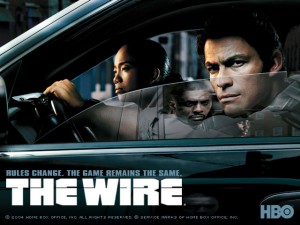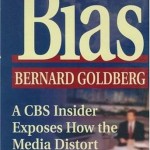 How offensive is too offensive?
How offensive is too offensive?
Today, while giving presentations about authors, a student screened a trailer for “The Wire” for all the Reporting I class to see. And hear. And hear, they did. The F word, the N word, even the C word.
The student blanched, as did I. I did my best to tell these 19- and 20-year-olds beforehand, as the video started, that this was likely to be strong, and I remarked afterwards that it certainly was. But, frankly, I was stunned at how vile it was. I hadn’t seen the trailer, though I had seen – and loved – the series on HBO.
Fortunately, the visuals were tame, unlike those in the show. But the effect of the words, repeated frequently, was nearly as potent. Ugly racist terms, ugly sexual terms, ugly sentiments in general. I faced a group of bug-eyed students who didn’t know quite how to react.
David Simon, the former Baltimore Sun journalist who created the show, was trying to reflect real life on the rough streets. How else do cops, drug dealers, politicians and union bosses talk, after all? The language shouldn’t be cleaned up if it’s to be authentic – or at least seem authentic. Can’t fault him for that. And in watching the show, all five seasons, I constantly was struck by how true-to-life he made all those flawed people seem.
But, while I give Simon kudos for “The Wire” and my student praised his real-life book about murder in the city, “Homicide,” that doesn’t mean the language needs to be showcased in a sophomore-level journalism class in Nebraska. There are ways to talk about the talk without listening to the talk.
 Am I a prude? Am I naïve about what my young charges hear on a daily basis? Am I too PC?
Am I a prude? Am I naïve about what my young charges hear on a daily basis? Am I too PC?
Coincidentally, in the same class we talked about Bernie Goldberg’s book about political bias in network TV. In one section, Goldberg dismissed a colleague’s preference of the term “Indian” over “Native American” while faulting another for labeling the flat tax idea “wacky” – both items evidence, in Goldberg’s mind at least, of bias and excess political correctness in mainstream media. That led to a good debate in class about whether journalists worry too much about PC language and whether we need to bother with it.
Well, yes, we do need to bother with it, I argued. If African-Americans prefer to be called such, the media need to do so. If Native Americans don’t like a term that Columbus or someone else erroneously bestowed on them, we have to respect that. And there really is no place in a classroom for the N word or really any of the other offensive terms that Simon’s show shouted.
 So, I’m donning the hairshirt on this one. I popped an email of apology to my students, even though I had been almost as surprised by the video as they were. It may have been the student’s presentation, but it was my classroom, after all. I’m not going to fault the student, who was just trying to enliven her time in the front of the class. But I sure wouldn’t encourage that sort of video again.
So, I’m donning the hairshirt on this one. I popped an email of apology to my students, even though I had been almost as surprised by the video as they were. It may have been the student’s presentation, but it was my classroom, after all. I’m not going to fault the student, who was just trying to enliven her time in the front of the class. But I sure wouldn’t encourage that sort of video again.
Yes, they’ve all heard worse. Yes, as journalists they will have to develop thick skin on their ears as well as everywhere else. And, yes, I’m from New Jersey, where people can shame Marines even when talking about the weather. But my Nebraska kids don’t have to traffic in the classroom in what my elders used to call foul-mouth talk.
Once, when I was young, I had my mouth cleaned out with soap. At times I can almost still taste it. Now is one of those times.
